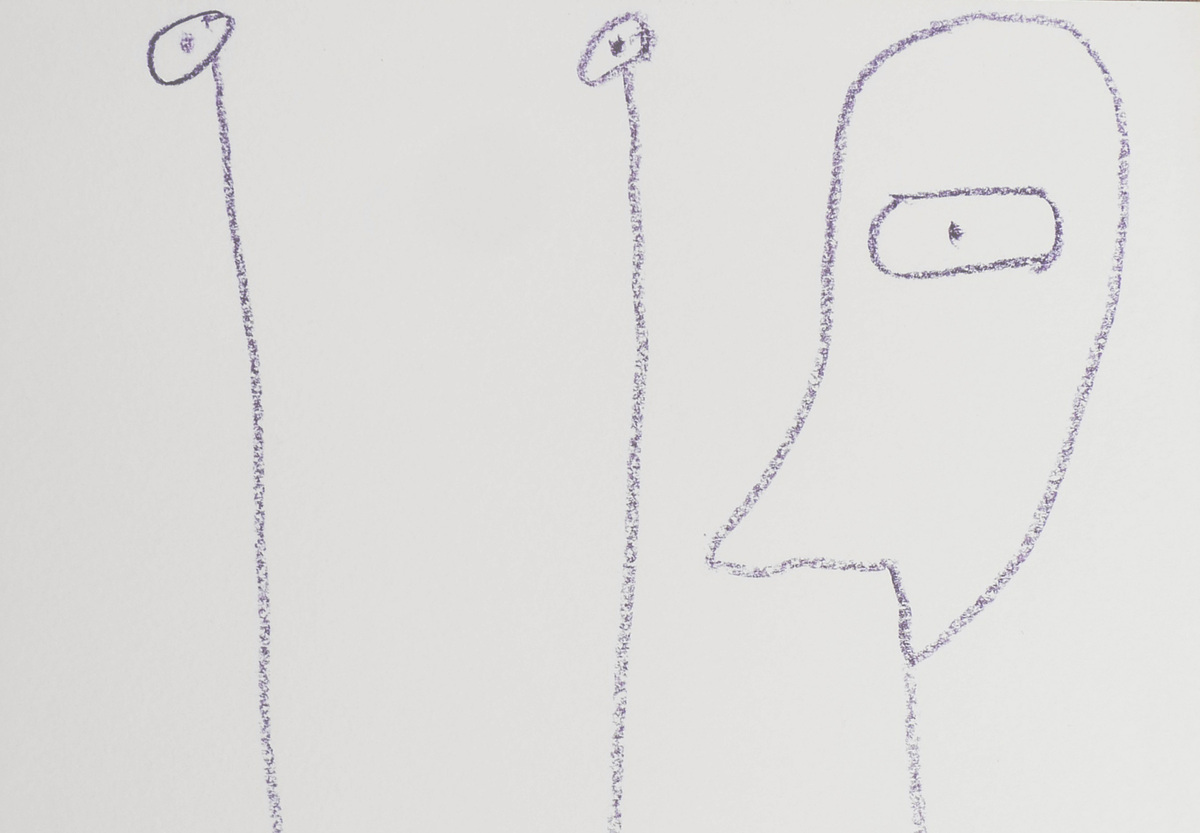Parlons Sénégalaiseries: Society and Marginality
17h30
We are always marginal in the eyes of somebody. There are those who look down on you because they don’t envy your social status, because it doesn’t arouse their desire. Separated from ordinary life and at times martyred in the name of social uniformity. And then there are those that look at you from below, conscious of your differences but crushed by their own ignorance.
In short, who is not, deep down, marginal for someone else?
The German ethnologist Hubert Fichte had an interesting relationship with marginality and brings it up several times in his work, particularly with regards to artists and the patients of Fann hospital, which he visited frequently during his visits to Dakar. In the exhibition Toutes les fautes qu’il y avait au monde, je les ai ramassées, these so-called “marginal” creators are brought into the centre of a dialogue on society.
Being on the margins of society, having a gaze that is different to that which is classic and which the vast majority of people make do with, becomes a privilege but also and mostly a disadvantage in the context of one’s relationship to society. This ambiguity will be discussed with contributions from Professor Momar Guèye, the writers Mariétou Mbaye alias Ken Bugul and Pape Samba Kane, and moderated by Ibou Fall.
About Professor Momar Guèye
Born in 1947 in Nguer in Senegal, Professor Momar Guèye studied medicine between 1967 and 1975 at UCAD before continuing his psychiatric training in Dakar’s hospitals where he notably worked alongside Professor Henri Collomb. Agrégé in medicine in 1988 in Abidjan, he remained the head of Fann’s psychiatric service until his retirement in 2012.
About Ken Bugul
Born in 1948 in Louga (Senegal), Mariétou Mbaye Bileoma, Beninese by marriage, signs her work under the pseudonym Ken Bugul which signifies in Wolof “nobody wants it”. After several years of primary school in her village, Mariétou Mbaye undertook her secondary studies at the Lycée Malick Sy in Thiès before spending a year at Dakar University where she obtained a scholarship which allowed her to travel to Belgium. A graduate in languages and a specialist in development and family planning, she has worked in many African countries in her role as an international official.
With the publishing of Boabab Fou (NEAS, 1983) Ken Bugul provoked an outcry in African literature. Never had an African overturned so many common preconceptions. In 1994, this Senegalese writer went for a second round with Cendres et Braises (L’Harmattan). This time, she examined the cultural aspect of feelings within “domino” couples. Still as convinced that culture is a determining factor in life, in her third novel Ken Bugul told the story of the coming together of destinies of African women. Riwan or Le chemin de sable is a deeply moving tale, drawn from the sources of real lived experience. It is written with strength and sensuality. In 1999 she won the Grand Prix Littéraire d’Afrique Noire.
About Pape Samba Kane
Pape Samba Kane is the founder of a number of newspapers, in particular the satirical paper Le Cafard Libéré (The Freed Cockroach) along with three dailies. After more than 30 years of journalism, in 2015 he published a novel Sabaru Jinne or The Devil’s Drums, with Éditions Feu de brousse (Dakar), and then a collection of poems À Tire d’Elles with Lettres de Renaissances (Paris).
About Ibou Fall
After attempts at working in the production and editing of comics, with a classical arts baccalaureate (Greek and Latin) as his only qualification, Ibou Fall started his career in journalism in 1989, first as proofreader at the bi-weekly newspaper Sopi, then as a chronicler with Le Billet de Ibou. He learnt about journalism on the job and, with five other journalists also fired from the Sopi weekly, he founded Le Témoin in 1990. First as a journalist, then as Editor-in-chief, he published a collection of his first Sénégalaiseries in 1993. Founder of the dailies Tract (2000) and Frasques (2001), he later published four other Sénégalaiseries issues: Dieu le pire (2009), Banc Diakhlé (2010), Les Egocrates (2012) and NTS, les Nouveaux Types de Sénégalaiseries (2013).
He co-founded the “trentomadaire” Le P’tit Railleur Sénégalais, of which he is the Publishing Director.
